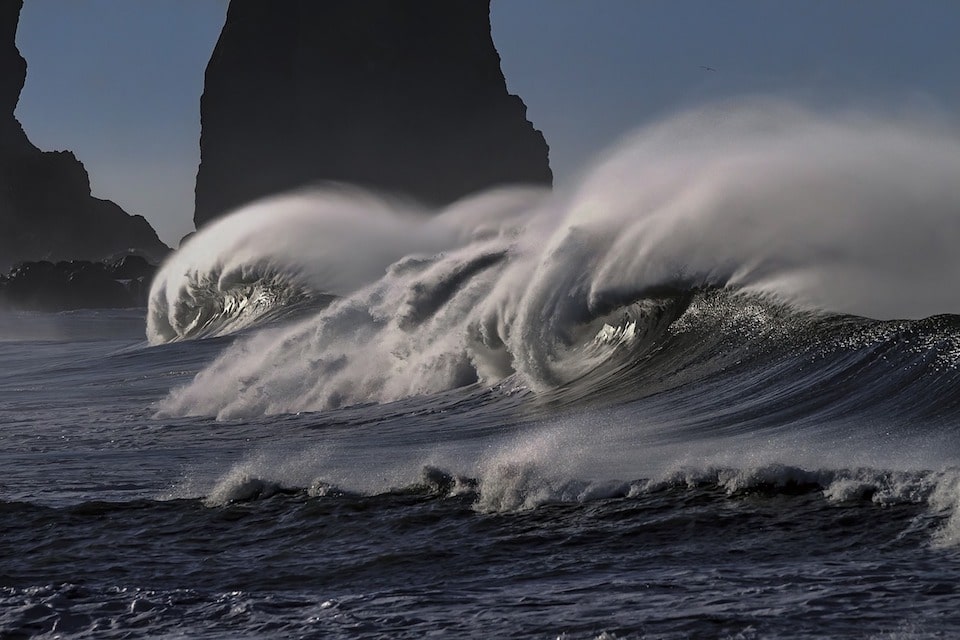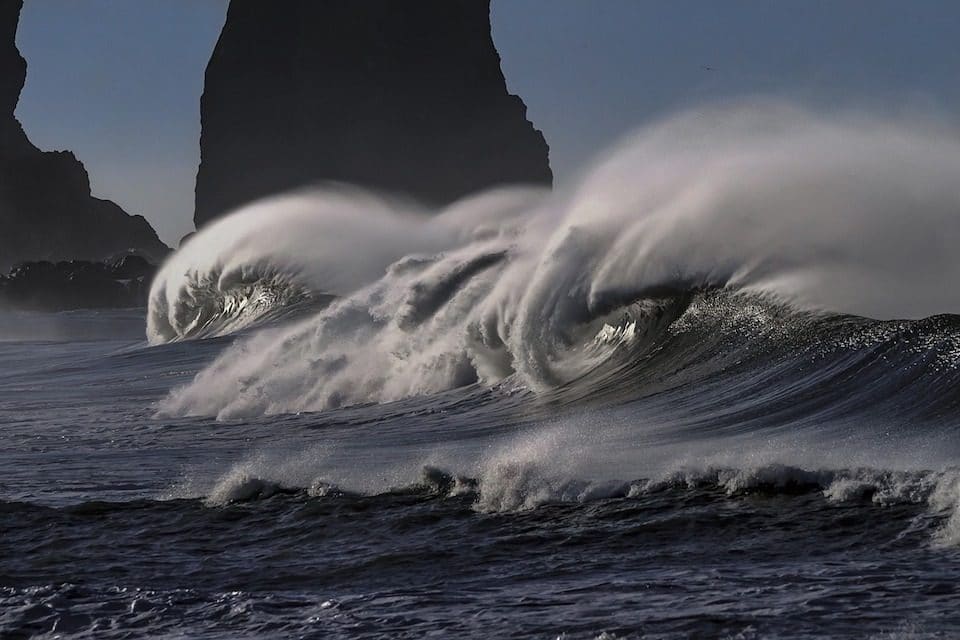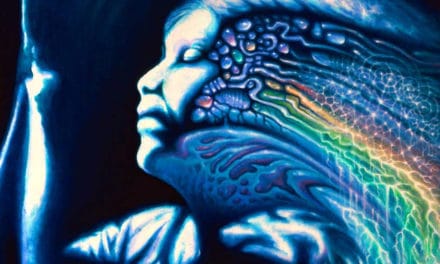
The modern Western world is in the midst of a drastic transformation. For many years, we haven’t been showing the proper respect for Earth’s most fundamental natural forces, leading to one weather catastrophe after another. The Internet has turned out to be a bit of a double-edged sword, giving us the ability to connect with one another digitally while simultaneously increasing feelings of isolation in some. It’s not a surprise that many of us are feeling stuck.
To find out how we can deal with this predicament, we spoke with Matthew Pallamary, author of the book The Center of the Universe Is Right Between Your Eyes But Home Is Where the Heart Is. Our conversation touches on the reverence that shamanistic cultures show toward elemental spirits like Fire, Earth, Air, and Water, the effect that technology has on society, and why the world is made of language.
I found the idea that elemental spirits are universally revered in shamanistic cultures to be one of the more interesting concepts of the book. How do those cultures view natural elements like wind and water?
In shamanism, the words “energy” and “spirit” mean exactly the same thing. Everything in shamanism has consciousness, even objects like rocks. We all know it’s clear that we can observe nature- we can try to predict it, but we can’t control it. Just look at all those people who were running away from the volcano in Hawaii, or tornadoes in the Midwest, or a blizzard, or a flood. All you need to do is look at a hurricane or a tidal wave or a freaking volcanic eruption to realize that they’re more powerful than we are. They’re deserving of respect, and you can work with them because they realize that you are collaborating with them. The primary elements are Earth, Air, Fire, and Water. Each one is equally powerful in its own way. Fire is revered for its purification properties. As a matter of fact, ayahuasca is considered a fire medicine in shamanistic cultures. When you take it, oftentimes your stomach burns, or you’re hot and sweating, or you’ve got fluids coming out of every orifice. Those are signs of purification. Every elemental spirit has its own personality and qualities.
What about plant spirits?
In the jungle there’s the spirit of mother ayahuasca and all these other helper and teacher plants and allies that have formed an association with ayahuasca. There’s a spirit to each plant, and when you’re in the jungle or in an ayahuasca ceremony and you’re singing to the plants, you’re flattering them by acknowledging their existence and asking for help. In my personal experience, I’ve discovered that once you start to acknowledge them—once you start knocking on spirit’s door—one day they will knock back. When that happens, it can scare the hell out of you. But those are energies, and there are intelligences behind those energies.
That’s a really interesting idea. What about our relationship to technology?
One of the things that I point out toward the end of the book is that the Internet is a narcissistic hall of mirrors. It’s a double-edged sword though. Because of it, we’re generally more isolated from nature. When I was a kid, I’d get out of the house in the morning, play outside all day until the street lights came on, and then I had to go home. Now people are so connected to their computers. I make it a point now to get out and connect with nature as the first thing I do each day. Then I come back and I’m glued to my computer, writing books or doing a query or something of that nature.
I had a major wakeup call many years ago. I published a science fiction novel called n0thing for the gamer community. It’s based on my nephew who’s a videogame rockstar in a game called Counterstrike. He’s like one of the top three guys in the world. He flies all over the world and plays the game in these tournaments, and he let me make him a character in my book. But I was targeting the gamers and I realized the hard way that they don’t read! They’re playing games!
I can see how that could be true. I went from being a pretty obsessive gamer to becoming more connected to nature after my experiences with psychedelics, but I was fortunate to have already developed a pretty strong reading habit when I was younger. In the book you explain why shamanism is the world’s oldest profession. What are some of the ways that our modern Western society could benefit from incorporating shamanism into our culture?
It’s a lack of awareness that really causes the problems in the world. If we’re out of touch with the natural world, we’re going to continue to pollute it because we’re just not aware. One of the wonderful things about psychedelics is that they’re all about expanding awareness. In many respects, alcohol is an enemy. You can have a little bit of alcohol, just a little bit, and then you become more aware. But it feels so good, because it’s seductive, and you continue to drink, which ends up making you increasingly less aware. Alcohol can even make you do things you don’t remember. It will ultimately deaden you. Now if you take something like LSD, the opposite is going to happen. In fact, you may be overwhelmed with the shit you see and you may not want to see it at all.
Many indigenous cultures consider waking consciousness, dreaming consciousness, and visionary states to all be the same. When you go into the jungle, all those worlds start to blur together and become part of one big continuum. Over time, some of the aspects of the dreaming and visionary states start coming into your waking life. And then your waking life starts going into the dreams and the visions. It all starts to flow together, which is when the magic really starts to happen. You can break the boundaries of “normal consensual reality,” becoming more and more of a free spirit. The more you do these things with the right kind of intention, the more you expand your consciousness. You’re exploring realms of perception and ways of seeing the world and for a lack of better words—different realities. Then your consciousness expands, because you’ve got more experience to draw upon that other people don’t have. You can communicate with ayahuasca and other plants in their own way.
All this work can be done without psychedelics, too. There are numerous perception exercises that I’ve learned in my studies with shamanism. You start to look at the world in a different way, and when you look at it in a different way then you’re getting outside the limits.
Speaking of perception, you included a lot of detail in the section about how humans and other animals perceive reality. You covered the various sense perceptions as well as the way our brains work. What were some of the more interesting things that you discovered while researching that topic?
Your body has its own innate intelligence that people tend to forget about. It tells you what is good for you, what isn’t good for you, and it can keep up with things like your heartbeat, your body temperature, and your breathing. All those things are very precisely regulated, and your body handles all of that for you automatically. The brainwaves in your brain are all working together and everything else in the world—things like the waves in the ocean—everything is deeply coordinated, forming a massive multi-dimensional symphony. It’s all designed to work together and everything is there to enhance each other when it’s following the natural order. It’s when we step in as humans and try to take over, and force it to our own means, that things start to get screwed up.
The way everything fits together is truly amazing. Your book talks about how the world is made of language. That idea can be difficult for some people to understand. What does it mean and what are some examples that may help people grasp the concept?
Certainly in our culture, reality as we know it is primarily constructed of language. It’s our primary mode of communication. When the [Australian] Aborigines go on a walkabout, they follow a storyline that guides them through the land. They’ll walk along and tell stories about various landmarks, which creates a unique mythology about each place, ascribing to it a personality that comes from the spirit of the place. Written language was around for a while before the ancient Greeks started utilizing it. It wasn’t even popular at first because oral storytelling, which is a performance art, was more important. Once somebody takes a story and writes it down, that marks the first separation from the natural world.
Right now you and I are communicating. In the same way when I’m writing a story, it’s serial communication, which means that one thing follows after another. I can create a reality with a sentence, but I have to do it one word at a time. As a writer, I have to take what’s in my mind and put it into individual words and give it to someone else that way in order for people to be able to recreate the reality in their minds. Any interpretation in reality from one person to the next has to happen through the use of language, unless they have telepathy or some other type of perception that’s beyond what’s normal. If I’m going to go to Peru, I can go read a travel guide to get somebody else’s interpretation, which will create a reality in my mind about what I think Peru is like. But of course when I go and experience it directly, then I have a whole other perception.
We are very grateful to Matt for sharing his insights and experience with us. You can check out his website and new book here.










